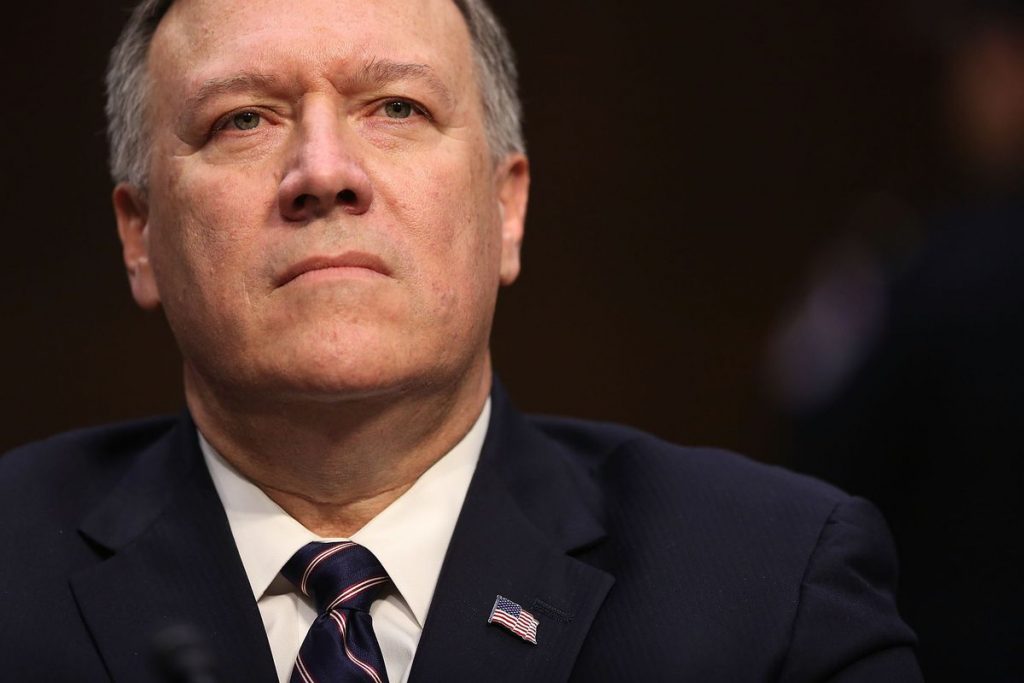Australia/Israel Review
Deconstruction Zone: The Three Challenges of Mike Pompeo
Apr 4, 2018 | Reuel Marc Gerecht

Reuel Marc Gerecht
US President Donald Trump’s announcement on March 13 that he had removed US Secretary of State Rex Tillerson and would nominate CIA Director Mike Pompeo to head the State Department will likely leave Pompeo spending most of his time in his new job dealing with three nations: North Korea, Syria and Iran.
The easiest will be North Korea. The odds are microscopic that direct talks between President Trump and North Korean dictator Kim Jong Un will lead to an agreement for North Korea to abandon its nuclear weapons.
The proposed Trump-Kim meeting proves once again the enormous value that the possession of nuclear weapons and the rapid development of intercontinental ballistic missiles confers upon North Korea.
Because of North Korea’s nuclear weapons, an American President says he is willing to meet an Orwellian dictator of a small, bankrupt state. Kim’s hold on power has depended upon nuclear blackmail, criminality, proliferation, the confiscation of wages paid to indentured North Korean labourers in other countries, and Chinese support.
Once Pompeo becomes Secretary of State – after his expected confirmation by the US Senate – he will surely diminish the chances that President Trump might get carried away with the spotlight of a high-profile summit with Kim. With Pompeo, ideas define policy. He’s not an engagement-for-engagement’s-sake or an “art of the deal” kind of fellow.
In fact, with Pompeo at the State Department, the odds of the meeting between President Trump and Kim Jong Un even happening will likely decrease. The new Secretary of State will pay close attention to the interconnectedness of the North Korean talks and the Iran nuclear deal, but not in the way that Secretary Tillerson appeared to do.
The street wisdom among the foreign-policy set in Washington is that keeping the Iran nuclear deal in force is essential to diplomacy with North Korea. According to this view, Kim must see that the Trump Administration is willing to maintain an agreement that has substantially rewarded Iran for its temporary nuclear restraint.
Pompeo is likely to see this in reverse, concluding that the deeply flawed nuclear agreement with Iran, approved by former President Barack Obama and five other significant nations, is likely a prelude to the nuclearisation of Iran.
In Secretary-designate Pompeo, the Europeans – who want to see the Iran nuclear deal continued – will find a more demanding counterpart than Tillerson.
Pompeo will be less inclined to accept compromises that do not clearly resolve the defects of the nuclear deal with Iran. A prime defect Pompeo is likely to want to remove is the sunset clauses that leave Iran free to develop a massive nuclear infrastructure in just 13 years time.
Pompeo is also likely to oppose the commercial illogic of the Iran nuclear agreement – which enriches the Islamic clerics who rule the nation for their nuclear restraint and then allows them to use billions of dollars to underwrite their aggressive regional ambitions.
In Syria, Pompeo will confront a US policy that so far makes little sense. President Trump still appears determined to reduce the American military footprint, which will inevitably empower Iran and Russia in the Middle East.
If the United States isn’t withdrawing from Syria in 12 months, a date sometimes thrown out by senior officials, then the State Department will need to engage in a full-court press with Turkey, the Europeans, and Russia, to work-out an agreement and ensure that, at a minimum, the Teheran-Moscow axis is held in check in the Middle East.
However much sleep Pompeo has been getting at the CIA, he’s likely to get less when he moves to the State Department.
Reuel Marc Gerecht is a senior fellow at the Foundation for Defence of Democracies (FDD). This article originally appeared on foxnews.com. © FDD (www.defenddemocray.org) reprinted by permission, all rights reserved.
Tags:






